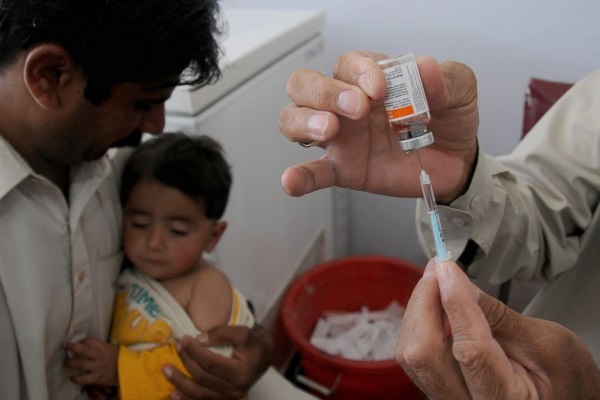
Parents in Indonesia have to consider re-inoculating their children after a police sting busted a fake vaccine syndicate that had been operating for more than a decade.
As many as 255 million people, mainly children, may have been given counterfeit vaccines after fakes, for diseases including TB, measles, hepatitis B and tetanus, were allegedly sold to health clinics across Indonesia for more than a decade.
Sixteen people have been arrested over their alleged involvement, while further investigations are ongoing to determine the scale of the scandal.
The three month investigation followed an alert from a major pharma company that some of its products had been counterfeited.
The country's Food and Drug Monitoring Agency believes at least 12 vaccine brands have been found as counterfeits, including brands produced by GlaxoSmithKline, Sanofi and Bio Farma.
Vaccines from nearly 30 health clinics have been confiscated but it is unclear how widespread the distribution was though it is believed the fake vaccines were obtained through unofficial distribution channels.
"We are working with the national food and drugs agency to collect data and take all measures necessary. If vaccinations need to be redone then we will do it. It’s not impossible," Oscar Primadi, a health ministry spokesman, said.
There have been no reports of fatal adverse events as a result of the vaccines. Reports suggest the fakes were a likely mixture of intravenous fluids and antibiotics with no protective properties against disease.
Authorities believe part of the reason fake vaccines are circulating so widely is because of demand from patients to use imported vaccines, which allows the drugs to come through unofficial supply chains.
"There is high demand from the upper-middle income bracket for alternative vaccines. If they want a polio vaccine, for example, they don't want those produced by state-owned pharmaceutical company Bio Farma. They want the imported vaccine. That’s why there's a gap," Tengku Bahdar Johan Hamid, chairman of the Food and Drug Monitoring Agency, told the Jakarta Post.
He said there were rigorous procedures to ensure the safety and quality of vaccines distributed through the official supply chain channel, including batch testing, post-market monitoring and procurement measures.
Regulating unofficial supply channels is more problematic, he said, because there are restrictions on monitoring procurement and distribution through those channels.
Counterfeit drugs are a concern in developing countries where drug regulatory and enforcement systems are weaker. A World Health Organization report in 2012 estimated that as many as 30% of the drugs in Africa, Asia and the Middle East could be fakes.
©
SecuringIndustry.com





